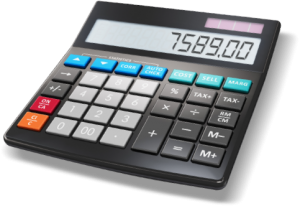When Oils Aint Oils & Taxes Aint Taxes
According to recent World Bank figures, Australia and Norway are the two most resource-rich nations on earth but where Norway imposes heavy taxes on the companies mining their resources (a reported 78%), Australia seems comfortable with a mere 7% return in state and commonwealth tax revenue.
The Norwegian Government implemented their tax scheme in the 1970s in response to the sudden increase in State income from the North Sea oil boom. They recognised that their oil reserves are limited and acknowledged that they were selling off the resources heritage of future generations. On that basis, they accepted a responsibility to take part of the proceeds “into trust” for those generations via the Norwegian Petroleum Fund which now has more than $480 billion in savings earning 25%pa.
The Fund serves another purpose in that it forms a buffer between current petroleum revenues and the use of these revenues in the Norwegian economy and balances inflationary pressures on local currency by being invested off shore in foreign currencies. In this simple way, the Norse economy is shielded from fluctuations in prices and extraction rates in the petroleum sector and neatly avoids “the commodities curse” – inflation and currency imbalances.
In Australia, by contrast, the most recent boom moved a far larger and broader range of resources but realised only $380 billion dollars of Federal revenue, nearly all of which has since been spent on short-term strategies with no enduring value and certainly without creating an appreciating asset.
The National Broadband Network, for instance, could have been paid for 20 times over from a Norwegian formula applied to the Australian circumstance yet we seem happy to “to give away the farm” – the farm we once owned in trust for our kids.
Meanwhile by underpricing access to our resources and failing to responsibly manager what proceeds there have been, even the short term benefit to Australian communities is questionable. In many places the resources boom has been responsible for increased rent; housing and skill shortages; and severely strained (and in many cases, damaged) infrastructure. Billions of dollars of public money have funded road, rail, and port facilities and have thus underwritten the boom and the profits of those companies who are drawing already huge profits to their grants of private access to public assets.
I recall a remark made many years ago by a French tourist who said, when told that Australia was known as “the Lucky Country” that we reminded him of the village idiot who wins the lottery – every day! Our Government seems to base its management of our future on the assumption that we’ll win the next one tomorrow – forever.
I must confess, I’m a lot less optimistic than they.
Just in case we don’t win tomorrow’s lottery, maybe now would be a good time start demanding a fair price for the right to remove our resources, and to start saving and investing our kids’ inheritance instead of spending it on groceries.
Otherwise you may find yourself facing an angry grandchild demanding, “What do you mean you burned all the oil?”





